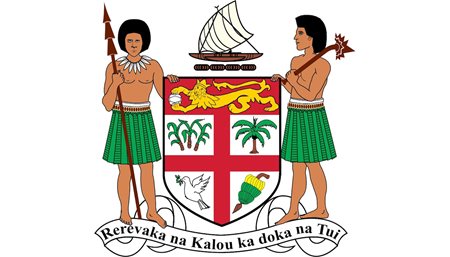Senior officials from the Fijian Government and the United Nations (UN) met yesterday for a High-Level dialogue to discuss the contributions of the UN to Fiji’s national development priorities. The agenda included a consultation on how the Government and the UN can better align their programmes to ensure that Fiji remains on track to achieving its sustainable goal targets.
Fijian Attorney-General and Minister for Economy Aiyaz Sayed-Khaiyum kicked off a frank discussion centred around how the United Nations can strengthen its engagement across the Pacific in realising the 2030 Agenda in Sustainable Development.
“At our recent Voluntary National Review, we laid out exactly how Fijians are ‘punching above our weight’ in driving forward an ambitious agenda to implement the Sustainable Development Goals. Of course, our work with the United Nations and our development partners remains critical in meeting the SDG targets. But there’s room for improvement – on both sides – to ensure that financial resources aren’t eaten up by overhead costs and, in fact, reach the people they are meant to benefit,” said the Attorney-General. “Fijians read plenty of headlines about new assistance commitments from our development partners, but by the time that assistance filters through levels of bureaucracy, there can be little left over to actually set projects in motion. And, too often, those projects can be blind to the realities on the ground in Fiji and other Pacific Island countries. I hope this dialogue is focussed on how we can ensure we turn financial commitments into measurable positive outcomes that benefit clearly identified segments of our population.”
During the high-level dialogue, the Attorney-General also provided an update on Fiji’s work to construct a purpose-built UN House in Suva that will bring the various UN agencies operating in the Pacific under one roof.
The high-level dialogue followed a technical consultation held earlier in the week where line ministries and UN agencies came together to validate information and statistics relating to Fiji’s national priorities across a range of areas, such as climate change, health, environmental protection, gender equality, human rights and economic empowerment.
“Under its Reform and through the more effective use of regional UN entities, the United Nations works towards providing cohesive inter-sectoral cutting-edge technological support to Small Island States, access to global platforms for advocacy and networks and cost-effective solutions,” said UN Resident Coordinator, Sanaka Samarasinha. “The UN is committed to ensuring Fiji, at the forefront of the Climate Emergency, is also fully supported to achieve its Sustainable Development Goals through better access to innovative financing.”
A presentation on the areas of successful Government-UN partnering showed that the UN spent a total of USD 43 Million on programmes in Fiji in 2018. Part of this went towards ensuring 3588 women market vendors’ association members had increased capacity to advocate for improved working conditions in market places, as a result of UN-led training; 2000 farmers were empowered and linked up to specific agriculture value chains;
supporting the procurement of vaccines, planning, supply chain management, and risk communication in response to the meningococcal C outbreak, achieving 90 percent coverage for Children aged 1-19 years during the vaccination campaign; and 250 Sexual Assault Evidence (SAE) Kits provided to the Fiji Police Forensic Biology & DNA Lab.
Fiji was also commended on completing its first-ever Voluntary National Review process and for its recent presentation at the United Nations High-Level Political Forum in New York earlier this month. The national reviews aim to facilitate the sharing of experiences, including successes, challenges and lessons learned, with a view to accelerating the implementation of the 2030 Agenda.
The 2030 Agenda for Sustainable Development, adopted by all United Nations Member States in 2015, provides a shared blueprint for peace and prosperity for people and the planet, now and into the future. At its heart are the 17 Sustainable Development Goals (SDGs), which are an urgent call for action by all countries – developed and developing – in a global partnership. They recognize that ending poverty and other deprivations must go hand-in-hand with strategies that improve health and education, reduce inequality, and spur economic growth – all while tackling climate change and working to preserve our oceans and forests.

